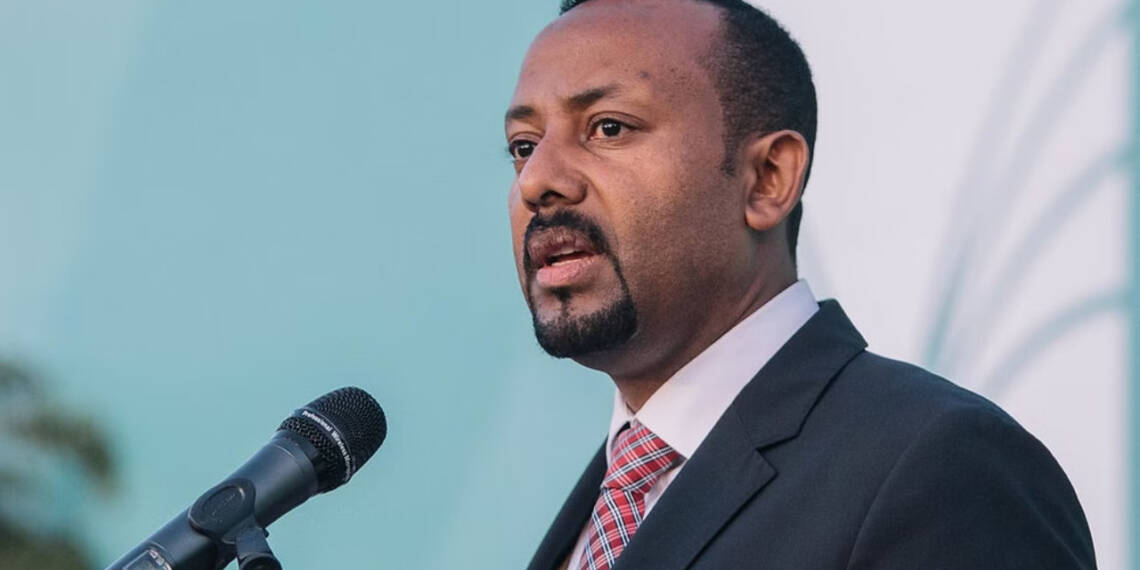NetBlocks, an Internet Watchdog that monitors internet access has said that access to social media platforms has been restricted in Ethiopia after violent protests were sparked by a rift within the country’s Orthodox Church. The current restrictions are affecting Facebook, Messenger, Telegram and TikTok.
As per a report, those with a virtual private network (VPN) can get onto those sites, but a total shutdown would prevent that too.
What is the rift?
The Ethiopian state has traditionally maintained close ties to the Orthodox Church, to which more than 40 percent of the population belongs.
However, now the Ethiopian government has been accused of “meddling” in the Church’s internal affairs although Prime Minister Abiy Ahmed asked his ministers to stay out of the dispute.
The protests broke out in the Oromia region when three Church officials declared themselves archbishops last month and set up their own governing body. The move has received mixed reactions from the demonstrators with some supporting it and others opposing it.
The three archbishops from Oromia accused the leadership of the main church of discrimination and a lack of diversity.
The archbishops have been excommunicated after setting up a breakaway synod, however, they claim to have a great deal of support in Oromia and had organized a counter-rally in Addis Ababa.
However, a court placed an injunction on them, banning them and the clergy they have recently appointed from entering Churches belonging to the Orthodox Church.
The Ethiopian authorities have shut down the internet during periods of political unrest. It was shut down in the Northern region of Tigray for most of a two-year war that recently ended.
However, the question arises, why did Ethiopia ban the internet during such tumultuous times? If we look at past events, there are plenty of examples of American big tech interfering in the internal affairs of African countries which often poses a grave threat to the stability of these countries.
However, despite the ban On the occasion of the new year, a verified Facebook page titled ‘Government of Uganda’ uploaded an image thanking its 50,000 users for following and wishing a prosperous new year 2023.
Read More: A fresh war between Uganda and Facebook begins. And Uganda is winning as usual!
It was shocking, to say the least, as the Facebook and Instagram pages purporting to be official government sites also had a “blue badge”, which indicates they were verified by Facebook.
The Ugandan government even had to clarify Using Twitter, that the accounts are not being run by the government.
Facebook has also been accused of meddling in Uganda’s elections. This was the only example of Facebook trying to interfere in Affairs of African countries.
Read More: Nigerian elections rigged for sure, social media just made it clear
Nigerian President Muhammadu Buhari has also voiced concern over how misinformation on social media is fanning the conflict, insecurity, and distrust in the government in the lead-up to the February Nigerian elections. There are growing concerns relating to Social Media’s capacity to tackle such misinformation & how it can become a tool for evil forces to manipulate and undermine election integrity.
Given the fact that Ethiopia has recently come out of a devastating Tigray crisis that ravaged the country for the last two years, it can’t afford another political instability as of now. It is important for the country to maintain law and order and concentrate on economic and infrastructural reconstruction. However, as there have been doubts about Social Media’s dubious role in African countries, it might be possible that it can again be manipulated to spread misinformation and destabilize the country by taking advantage of the ongoing situation which will further vitiate the environment and hard-earned progress towards peace could be lost in a matter of days. Therefore, Ethiopia has done well by proactively taking action to nip such a possibility in the bud.
https://www.youtube.com/watch?v=lvaq1JAfZeE








